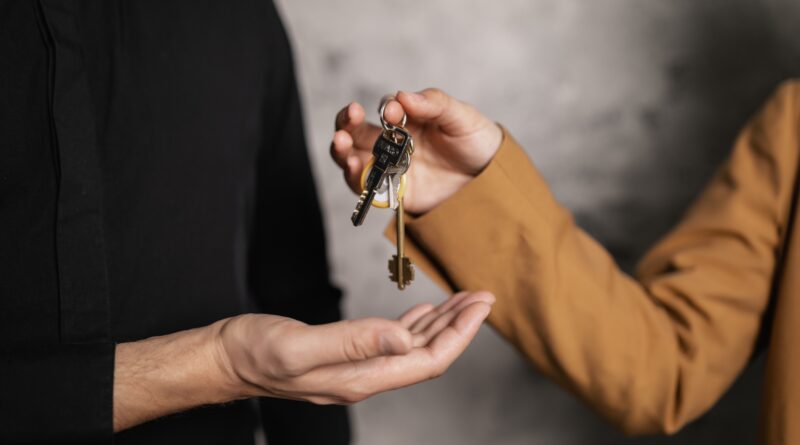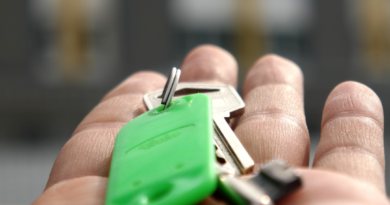Buying a tenanted property with vacant possession on completion date
If you’re looking to move house, you may have come across the term ‘vacant possession’. Vacant possession carries legal implications when selling or buying a house, so it’s important to understand what it means.
What is vacant possession?
Vacant possession means that the property is empty on completion date. The seller must have vacated the property and handed over all keys to the buyer.
The property may still be furnished, but it must be empty of the seller’s belongings. The seller must also have cleared any outstanding bills or debts relating to the property.
You probably assume that vacant possession is the only appropriate state to receive your new home in on completion day. However, unfortunately not all house transfers run this smoothly. The Standard Conditions of Sale in England and Wales states there are no legal requirements for a property to be sold with vacant possession. This means that you can legally be sold a house that is not vacant possession upon completion.
Buying a house without vacant possession
If you find your dream home and then realise it is being sold without vacant possession, you’ll want to understand how this will affect the property sale.
Typically, a property without vacant possession will have tenants living in it whose tenancy ends after the completion date of the sale. The new owner then has to go through the process of evicting the tenants. This can be a long and costly process, and there is no guarantee that the tenants will leave peacefully.
In some cases, the seller may have already served notice on the tenants, which will terminate their tenancy agreement on or after completion date. If this is the case, you should check that the tenants have actually moved out on completion day.
If you’re still interested in buying the property, there are a few things to consider before going ahead with the purchase.
Things to consider if you want to buy a house without vacant possession
- You need to be sure that you’re comfortable with the idea of evicting tenants. This can be a stressful and time consuming process, and it’s not always guaranteed to go as smoothly as you hope.
- You’ll need to factor in the cost of evicting tenants. This can include lawyer’s fees, court costs and any damages that may be awarded to the tenants.
- You’ll need to be aware of the risks involved in buying a property without vacant possession. If the tenants don’t leave on completion day, you’ll have to take legal action to evict them. This can be costly and time consuming, and there’s no guarantee that you will be successful.
Overall, buying a house without vacant possession is a risky business. You need to be comfortable with the idea of evicting tenants, be prepared to fork out for legal fees, and be aware of the risks involved. If you can tick all these boxes, then go ahead and make an offer on the property – but be sure to factor in these costs into your budget.
Buying a house with vacant possession
If you agree to buy a house with vacant possession, the process should hopefully be much simpler. A property bought with vacant possession should be completely empty of personal belongings and any tenants will have been evicted.
When buying a house with vacant possession there may be a tenant in the property when you decide to make an offer. However, in order for the property to be sold with vacant possession, the seller will have to ensure that the tenant has moved out before completion.
If you’re buying a vacant possession property, make sure to ask the seller for proof that the tenants have been evicted. This could be in the form of an affidavit or letter from a solicitor.
When you’re buying a house with vacant possession, it’s important to remember that the sale is legally binding. The seller cannot change their mind and decide to keep the property after completion.
Top tips before buying a house with vacant possession
- Inspect the property before contracts are exchanged to check that it has been fully vacated.
- Get the seller to provide you with an affidavit or letter from their solicitor confirming that the tenants have been evicted.
- Make sure you’re happy with the condition of the property before exchanging contracts. Once contracts are exchanged, you’ll be legally bound to complete the purchase.
Selling a house with vacant possession
If you are selling your property with vacant possession, yourselves or your tenants must have left the house by completion day. You must also ensure that any personal belongings, that have not been agreed as part of the sale, have been removed.
If it is a rented property, as the current owner, it is your legal obligation to check that the tenants have actually moved out on completion day. If they have not, you will need to take legal action to evict them.
The buyers of your property could make a legal claim against you if you do not ensure that it is vacant on the day of exchange. This includes making sure that any current tenants have moved out by the agreed date. A property with vacant possession must also be empty of any furniture and rubbish by completion day.
Top tips for selling your house with vacant possession
- If the property is rented, give notice to your tenants in accordance with their tenancy agreement, so that they have time to find alternative accommodation.
- Ensure that all personal belongings have been removed from the property.
- Get the buyer to provide you with an affidavit or letter from their solicitor confirming that they are happy with the condition of the property.
- If you are selling a rented property, make sure that the tenants have actually moved out on completion day.
Problems to look out for when buying or selling with vacant possession property
Buying a house with vacant possession should be a smoother process than buying one without it. However, things can go wrong on both sides of the situation so it is good to be aware of issues that could arise beforehand.
Issues when buying with vacant possession
- Tenants refusing to leave the property, could mean that it is not vacant for your move in date. If this is to happen it is the seller’s responsibility to evict the tenants. If this causes a delay exchanging contracts, you should be able to make a claim.
- The property is not in the same condition as when you inspected it. This can be a big issue if you were relying on the inspection to make your decision about the purchase. You may be able to claim from the seller for any damages that have occurred since the initial inspection.
Issues when selling with vacant possession
- Tenanted properties must be empty when selling a house with vacant possession, issues may arise for you as the seller if the tenants refuse to leave. It is important to ensure that you schedule the end of the tenancy for well before the completion date. This avoids the buyer taking legal action against you and the loss of any rental payments from the tenants.
- If you are living in the property yourself and do not vacate the property by the agreed date, you risk the buyer claiming against you. Therefore, it is crucial that you are ready to move yourself and your possessions by the agreed date. If you are between properties, it may be worth renting some storage space to move your belongings into.
Where to get help
To get more advise and legal help about buying a tenanted property with vacant possession, you should speak to a conveyancing solicitors. My Conveyancing Specialists are able to assist in making sure the moving process goes smoothly. Conveyancing is the transfer of the legal deed of the property from one party to another, including the negotiation of exchange contracts. By ensuring that your contracts cover all basis of vacant possession, you will be able to take legal action if anything goes wrong.
Buying a tenanted property can be especially challenging as there is a third party involved, that can create issues for your move. Working with a qualified conveyancing solicitor will make the process much safer, as they will be able to negotiate the terms of the vacant possession.
My Conveyancing Specialists will be able to provide you with more information regarding vacant possession in relation to your specific circumstances and aid with any legal issues when moving into your property.



